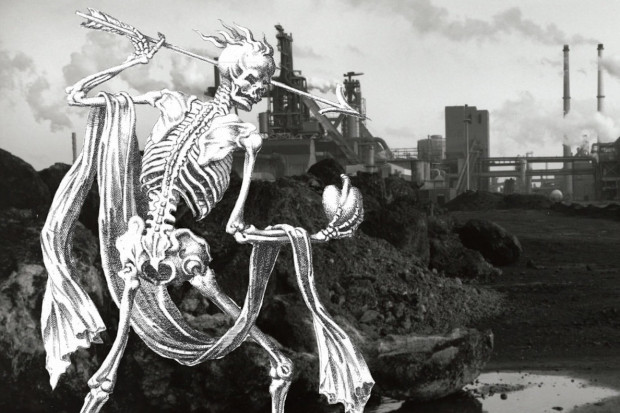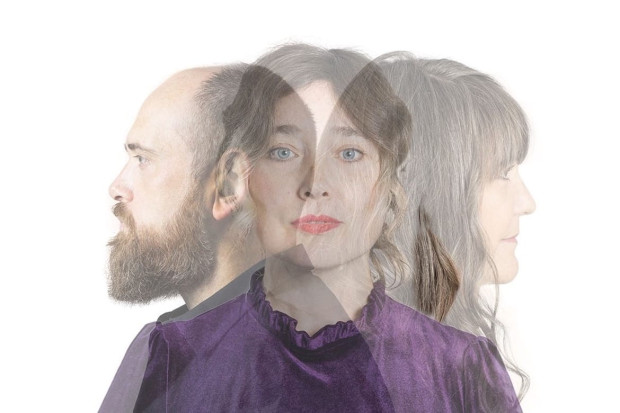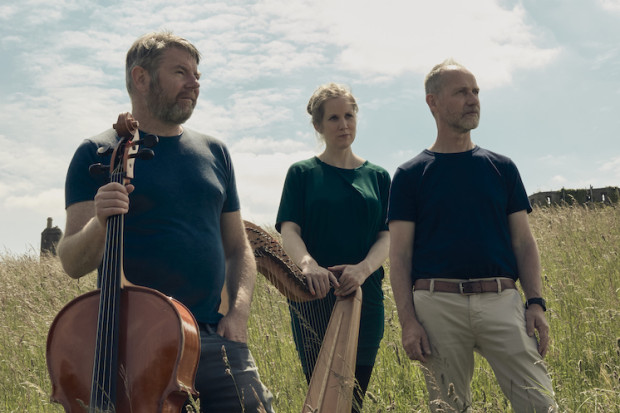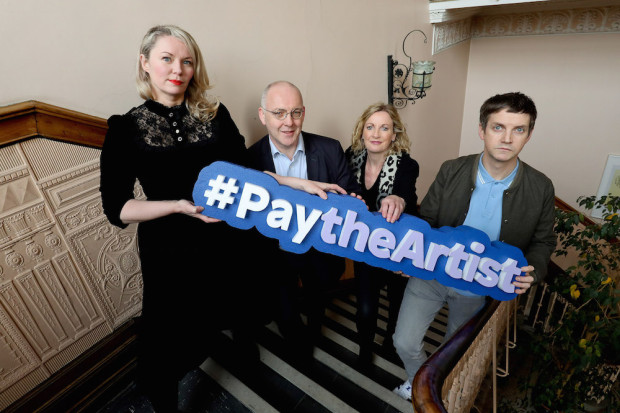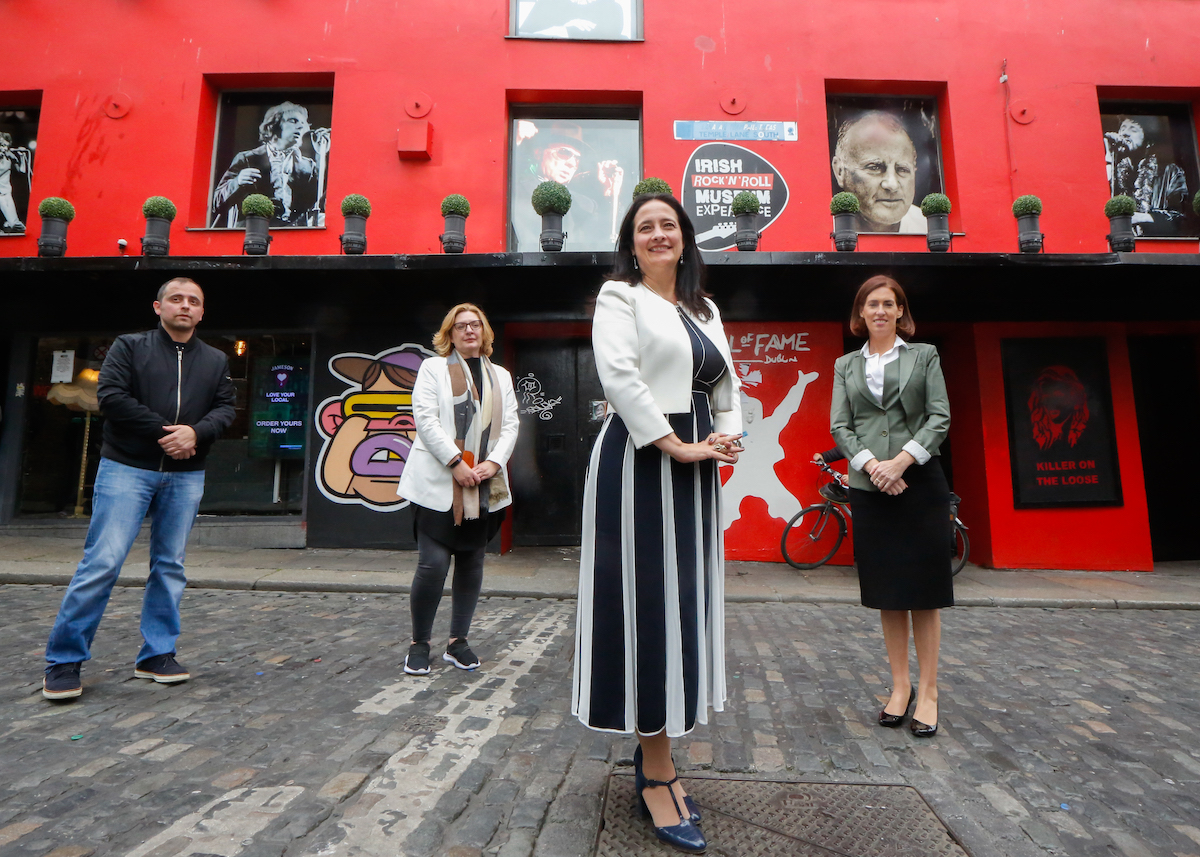
Launching the report on the night-time economy: Sunil Sharpe of Give Us the Night, Liz Meaney of the Arts Council, Minister for Arts Catherine Martin and Minister of State Hildegarde Naughton (Photo: Department of Arts)
No One is Talking About What Musicians Get Paid
Last week, the government published the Report of the Night-Time Economy Taskforce, focusing on entertainment and culture between 6pm and 6am in towns and cities. It contains 36 recommendations that the Taskforce believes can transform the night-time economy, energise our urban centres, and make Ireland an extra-special destination for tourists. The proposed actions are broad, from modernising licensing laws to pilot events to developing transport.
What does having a great night-time economy mean to you? On the cover of the report are two photos: one of a DJ at the decks with a crowd dancing, hands in the air, and the other is of Quay Street in Galway, an area that thrives on live music, mainly traditional Irish, rock and pop but lots more too. Indeed, the awning of the Quays bar in the photo reads ‘Live Music’, ‘Late and Live’, and anyone who has been there knows that this is true. Inside the 31-page report, there are six more photos, four of which focus on music. This all makes sense: everyone’s idea of a great night out involves a live performance somewhere along the way. The live experience brings dynamism and energy, something unique you cannot get elsewhere. The very first recommendation in the report proposes a series of new gigs in pubs with an emphasis on ‘new and emerging acts’.
It is fair to say, then, that musicians and artists are pivotal to the reinvigoration of the night-time economy. Without them, we have no traditional music sessions, no singers or bands in bars, no singalongs, no buskers on the streets, no clubs with live DJs, no concerts, no actors or performers on stage, no festivals, no orchestras in the pit, no buzz, and basically empty venues. Good luck trying to attract anyone to a cultural quarter with that.
So what does the report have to say about musicians and artists and their work? In the Foreword by Katherine Licken and John McCarthy, a current and former Secretary General of the government, they mention that certain ‘areas of concern’ were raised during the consultation process, primarily that those working in the night-time economy are in ‘precarious employment’, but that this was ‘outside the immediate remit of the Taskforce.’
This is true. The Terms of Reference for the report, which were provided by the Minister for the Arts, say nothing about musicians or artists. In fact, of the twenty-two members of the Taskforce, only three have any direct connection with artists: Maureen Kennelly of the Arts Council, Jenny Sherwin of the Association of Local Authority Arts Officers, and Sunil Sharpe of the organisation Give Us the Night. Inevitably, during the compiling of the report, there was a very small number of responses from artists; only one arts organisation (Thispopbaby) was asked to give a presentation to the Taskforce out of 20 such contributions; and none of the international guest speakers invited to feed into the report were full-time artists.
The result, therefore, is that the concerns of the people who are central to making the new night-time economy a success are hardly represented. When you read the report, it is incredible how this elephant in the room is overlooked. It is like trying to start a car without fuel, or build a skyscraper without foundations. But this happens all the time. The work of musicians is taken for granted, and we build all sorts of things around them without dealing with fundamental issues, and so the problems go on.
The role of artists in the new night-time economy is fundamental, so just what were those ‘areas of concern’ that were outside of the Taskforce’s remit? We don’t need another report to find out. Anyone in music and the arts can tell you: low pay, lack of security of employment, no employee rights, unable to rent a home or get a mortgage near their work, and basically having none of the rights or advantages that come with other types of part-time or full-time employment, such as a contract, sick leave, a job description and rights relating to dismissal. But it is presumed that musicians will continue to turn up and work all night in the new night-time economy without any change at all. And, unfortunately, as things stand, the report is probably right. Yet it is incredible that no one saw to it that this issue was addressed in the work of the Taskforce.
However, the post-pandemic world was meant to bring about a new way of thinking, and we should focus on this moment and imagine the alternatives. There is an appetite for change, and nothing is going to be altered unless musicians imagine new approaches. The report still has to be implemented. What practical steps could be taken?
Certainly, with regard to the first recommendations for a new series of gigs, Minister Catherine Martin could insist on pay and conditions for musicians that reflect their centrality to the night-time economy, and this could set a precedent. The report also mentions the setting up of a representative body for the electronic music sector, but it should not stop there. Give Us the Night could set up an organisation that would represent all performing artists working in the night-time economy, and Minister Martin could insist on this, and support it too.
It is clear that some charter of fair employment that artists, venues, bars and promoters could sign up to is needed. It would include a right to a contract, a minimum wage, set hours, a pay slip, and if employed by the one company over an extended period, the right to an extended contract. No pub, club or bar will volunteer it, but millions will be spent implementing the recommendations of the report and Minister Martin must insist on a fair deal for musicians and artists, not least to make sure that the rest of the recommendations don’t all crumble because this pivotal issue is not addressed.
None of these issues are new, but we have repeatedly failed to address them for years. On the same day that the report was published last week, the musician Steve Cooney, who has worked as a professional musician in Ireland for over four decades, said in an RTÉ interview:
I’m looking forward to a time (hopefully soon) when musicians will have a decent and strong union to represent their interests in the face of strong and growing bureaucracies that erode their natural rights… and when musicians can realise that they need to put aside personal and professional differences and band together in solidarity in order to create a strong ethical community that can make the working life of musicians easier and more positive for the coming younger generations.
If a musician in Ireland is saying that after over forty years of working here, why do we imagine anything will change if we continue to do nothing? The issue of the night-time economy and artists is just one of many still to be addressed.
The report is available to download here.
Published on 21 September 2021
Toner Quinn is Editor of the Journal of Music. His new book, What Ireland Can Teach the World About Music, is available here. Toner will be giving a lecture exploring some of the ideas in the book on Saturday 11 May 2024 at 3pm at Farmleigh House in Dublin. For booking, visit https://bit.ly/3x2yCL8.












